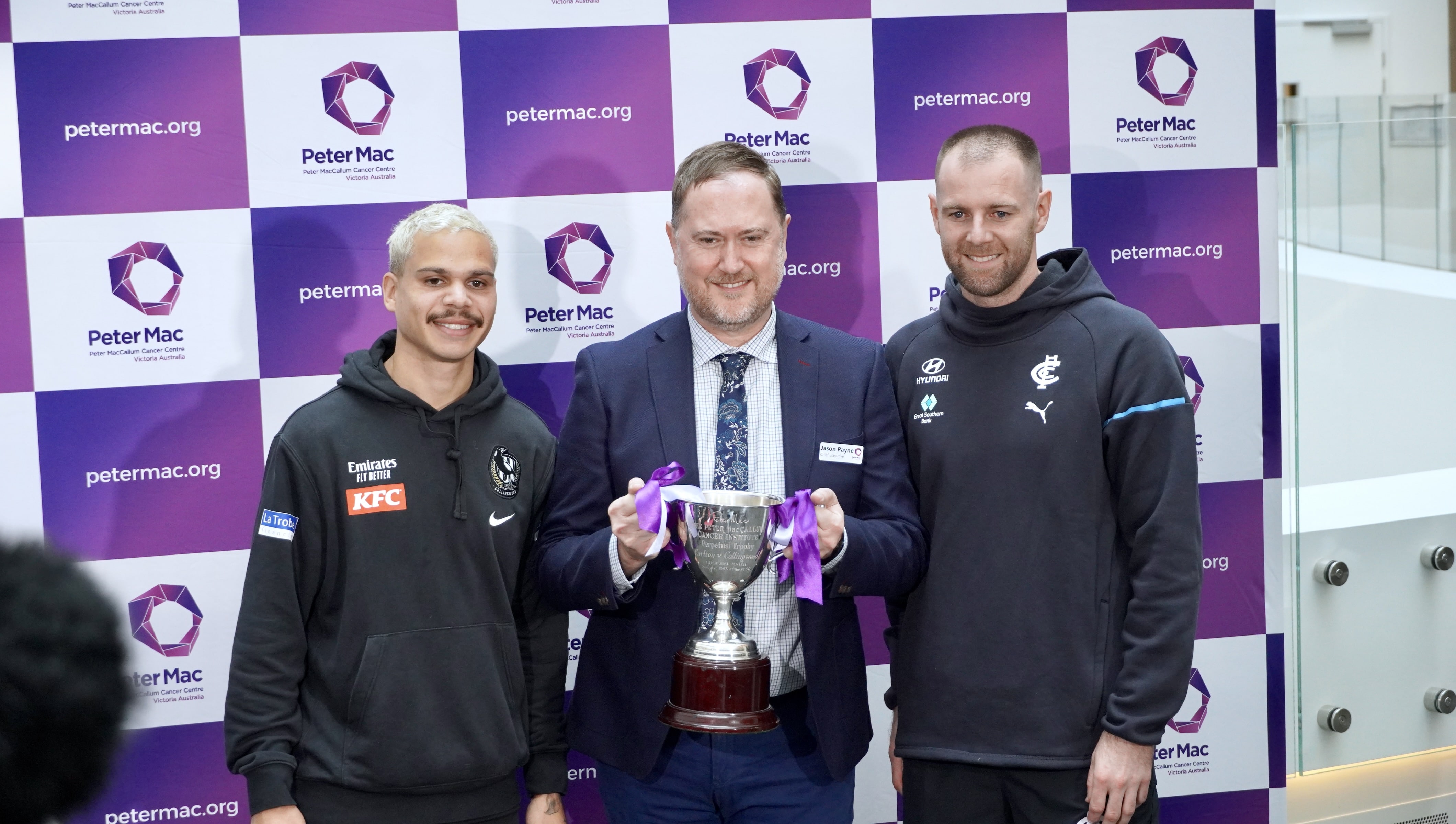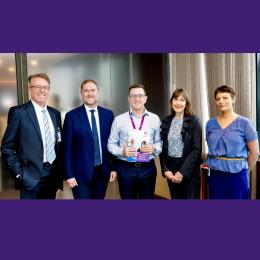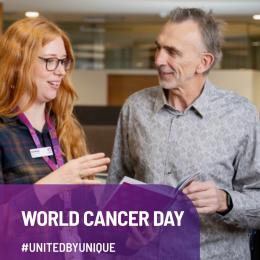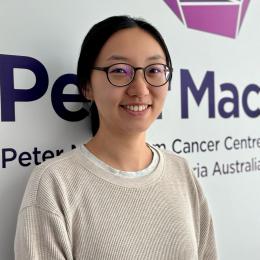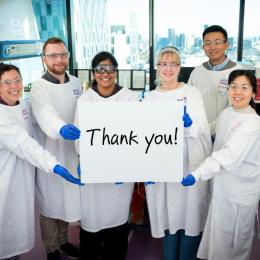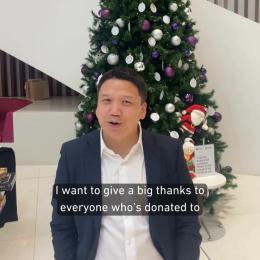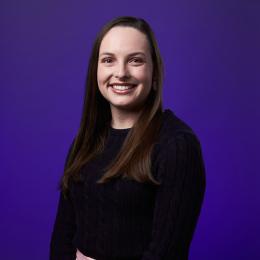Lily's story
5 min read 06 September 2023
Lily, aged five, was in her first year of school when she began to complain of terrible headaches.
Her parents, Alicia and Greg, took her to see the doctor, who thought it was a virus, and then a paediatrician, who suspected a migraine.
Days later, Alicia received a call from the school. “Lily just stood up in class,” her teacher said. “All of a sudden her eyes rolled back and she started vomiting."
Alicia and Greg rushed Lily to hospital where an MRI scan showed something that shouldn’t be there.
Lily had brain cancer—a rare and aggressive type with a survival rate that hasn’t improved in decades.
"No one wants to hear that their child has cancer," Alicia said. "We were afraid, but we also had a little bit of hope as well."
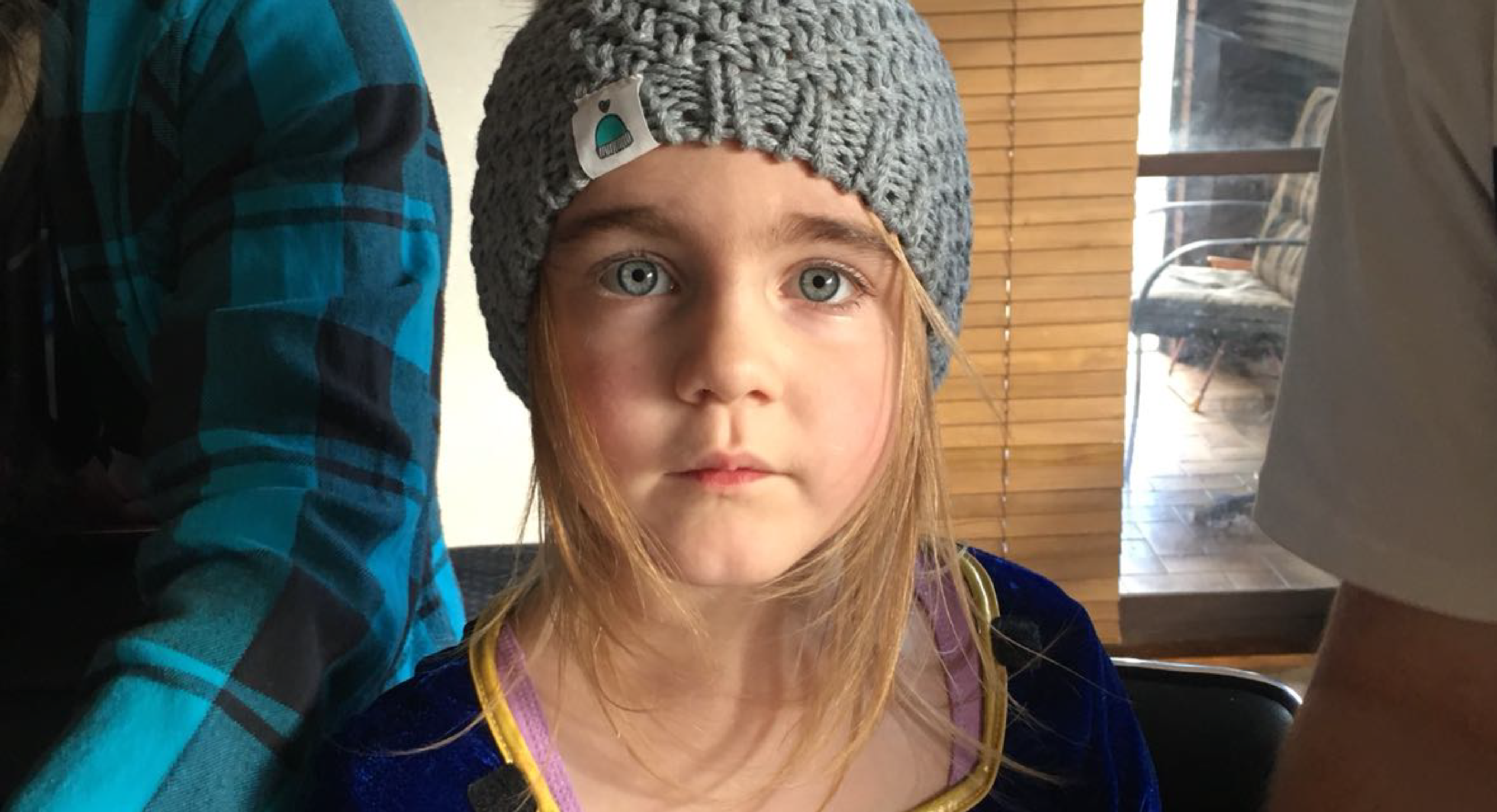 Lily was just five years old when she was diagnosed with a rare and aggressive brain cancer
Lily was just five years old when she was diagnosed with a rare and aggressive brain cancer
Waiting and wondering
The standard treatment for cancer like Lily’s begins with brain surgery to remove as much of the tumour as possible. Alicia remembers how frightening it was sending her young daughter into surgery.
Imagine having to sign a form saying your child may basically die on the operating table of a stroke or hundreds and hundreds of different things that could have happened.
When Lily went into surgery, Alicia and Greg sat there counting the minutes, wondering if their daughter would be the same when she woke up.
After almost 12 hours of surgery, Lily's parents received the news they’d been hoping for. The surgeons had managed to remove the tumour.
But her treatment didn’t end there. To stop the tumour from returning, Lily needed radiotherapy every Monday to Friday for six weeks – 33 sessions in total.
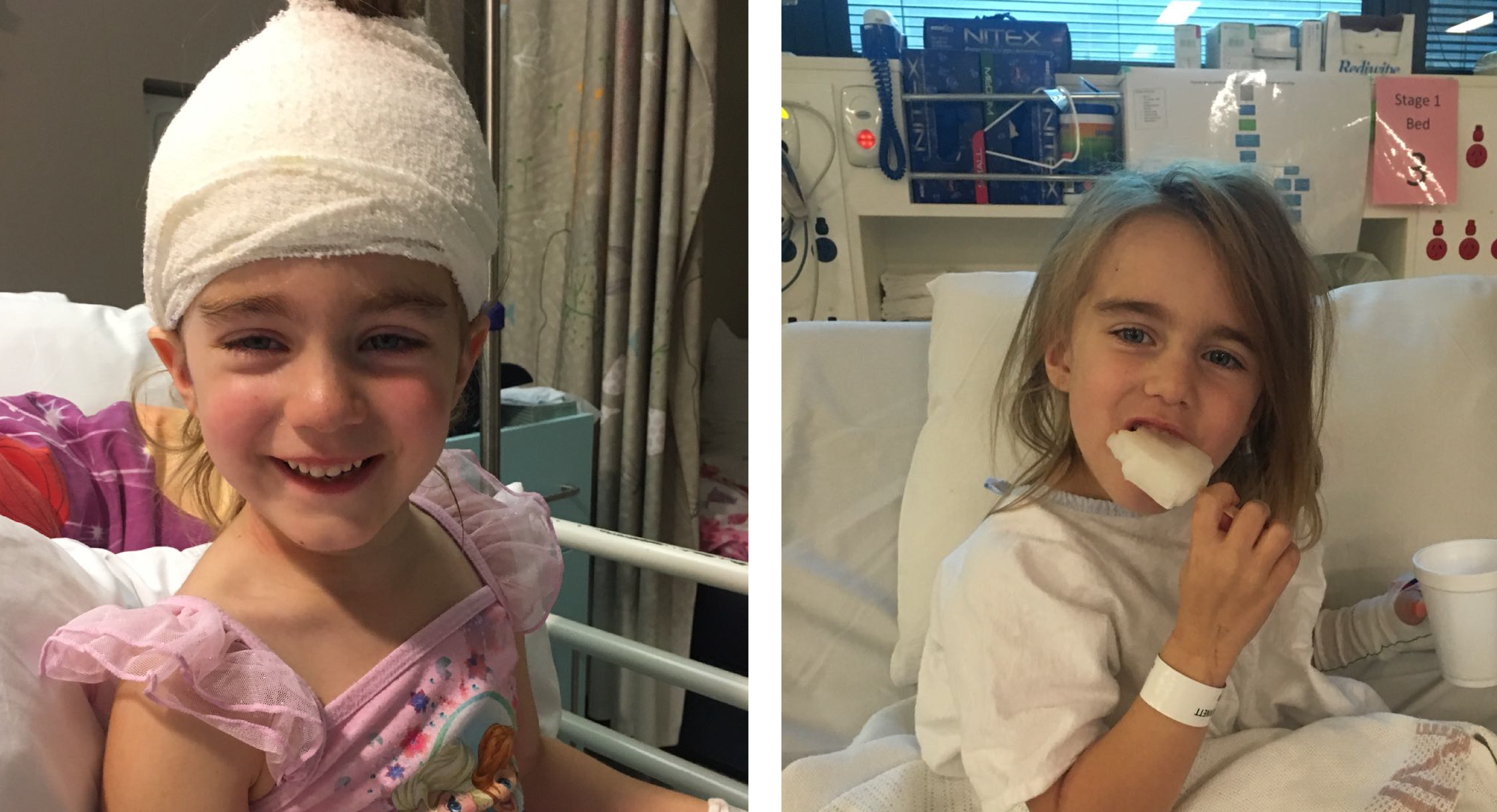 Lily underwent 12 hours of surgery to remove the tumour from her brain
Lily underwent 12 hours of surgery to remove the tumour from her brain
Agonising choices
To further reduce the chances of her cancer returning, Lily was also offered chemotherapy. But Alicia and Greg were worried about the long-term effects.
“We were told things like she could have learning difficulties, and she might not pick up things as fast as other kids, and that everything could be just that little bit more of a challenge for her, her mobility, her coordination, all of that might be a little bit off,” says Lily’s mum, Alicia.
Every day, parents of kids with cancer face agonising choices - knowing that treatments that could save their child’s life might cause lasting damage in other ways.
There is no doubt that conventional treatments like radiation and chemotherapy save lives like Lily’s. But they can also — in some cases — cause side effects that affect children mentally, physically, and emotionally for the rest of their lives.
Having to sit down and make such a big decision for someone who is not yourself, and the fact that it could possibly change their life forever, is huge.
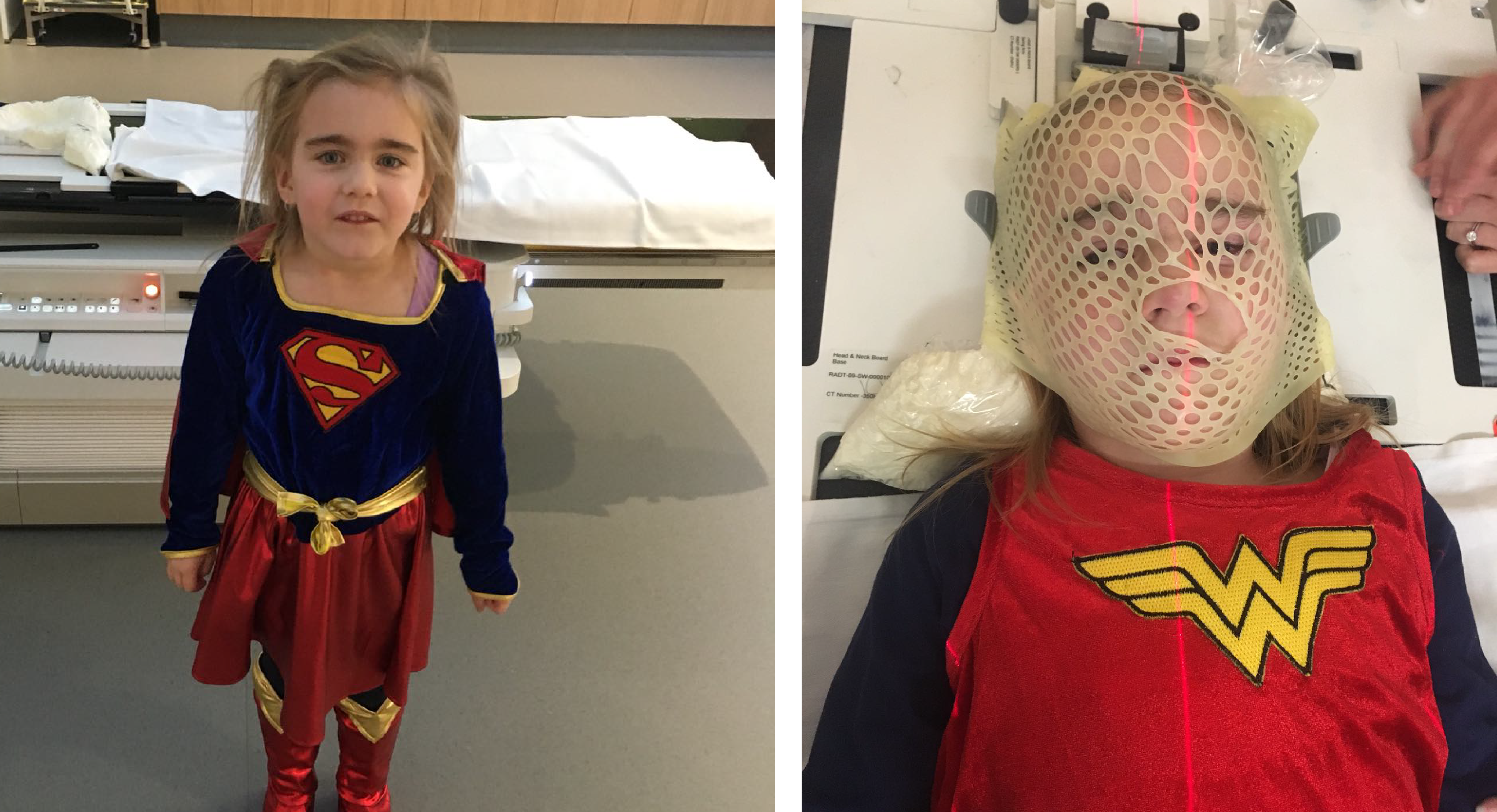 Lily felt braver and stronger when she dressed up in superhero costumes for her radiotherapy treatment.
Lily felt braver and stronger when she dressed up in superhero costumes for her radiotherapy treatment.
Kinder, safer more effective treatments
Now twelve years old, Lily has received a clear result from her final scan and is considered ‘cancer free’.
“Without all the research done in the past, Lily wouldn’t be alive today”, says Alicia. "Many other families aren’t us lucky as us. That’s why we need more research."
Thanks to recent research breakthroughs, new therapies are being developed to save families like Lily's from heartbreak.
Immunotherapies are new treatment options that can spare patients from the devastating side effects associated with radiation and chemotherapy.
Immunotherapies involve removing a patient’s T-cells, re-engineering them in a lab and delivering them back into the body to attack and kill the cancer cells. This kind of therapy is tailored to each patient by harnessing their own immune system.
While immunotherapy holds great promise, it’s still not effective for every patient, and every type of cancer. Further research will give hope to more families - hope that we can find more effective treatments with fewer side effects and better survival rates.
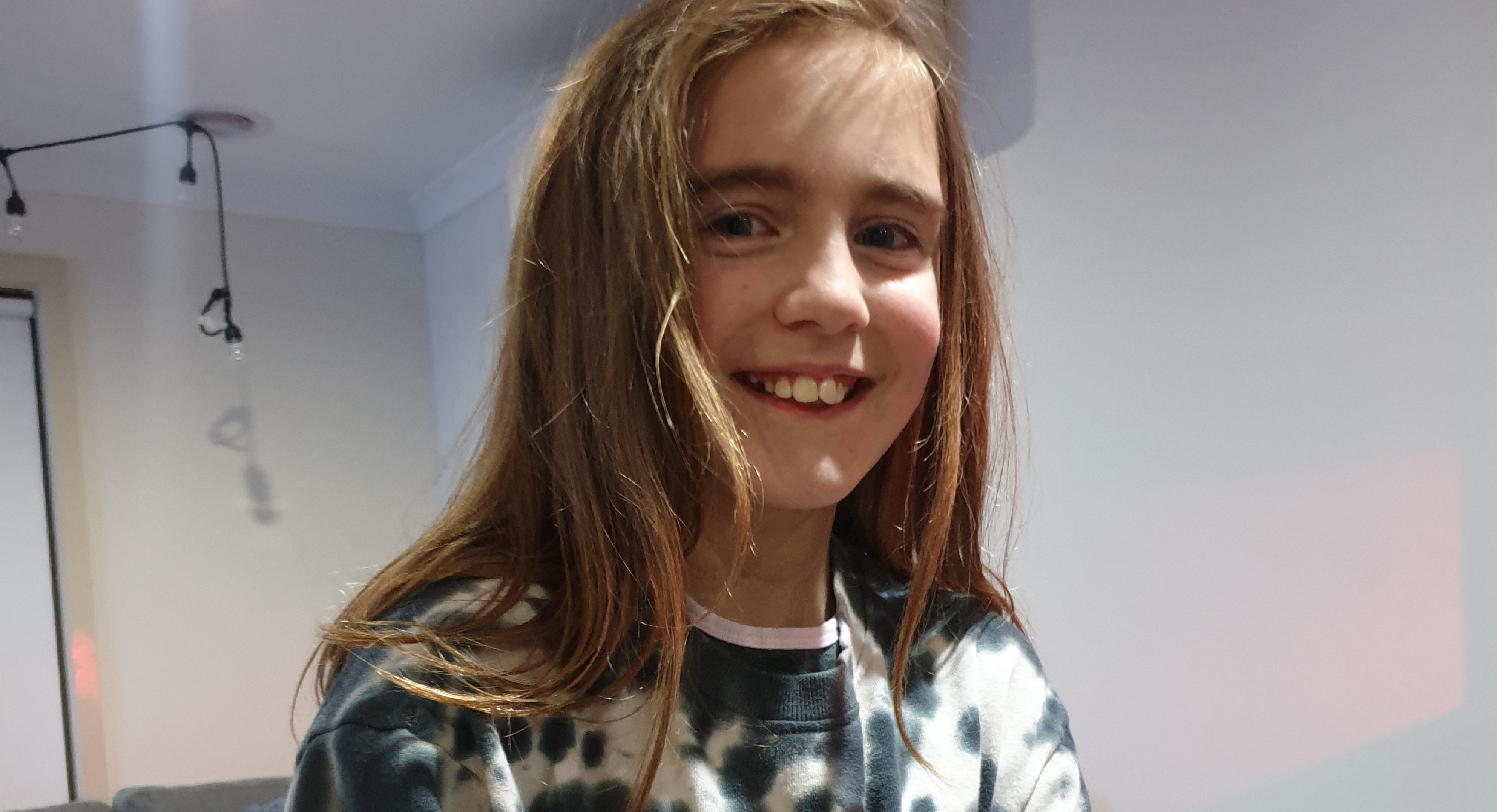 Lily, now aged 12, is considered 'cancer free'
Lily, now aged 12, is considered 'cancer free'
Immunotherapy breakthroughs in childhood cancers
Peter Mac’s team of 750 researchers is dedicated to overcoming cancer through world-leading cancer research. One of them, Dr Deborah Meyran, is exploring how a child’s own immune system might be used to overcome their cancer.
“No kid should be ill”, says Dr Meyran.
No kid should have all their hair fall out, have their body damaged. We need to offer these kids a better option. We need to find new therapies especially for kids. We need to cure them for life.
As part of her research, Dr Meyran is testing a type of immunotherapy called CAR T-cell therapy. This involves taking some of a person’s cells from their immune system and ‘activating’ them to recognise and attack cancer cells. These cells are then injected back into the patient, where they seek out the cancer cells and destroy them.
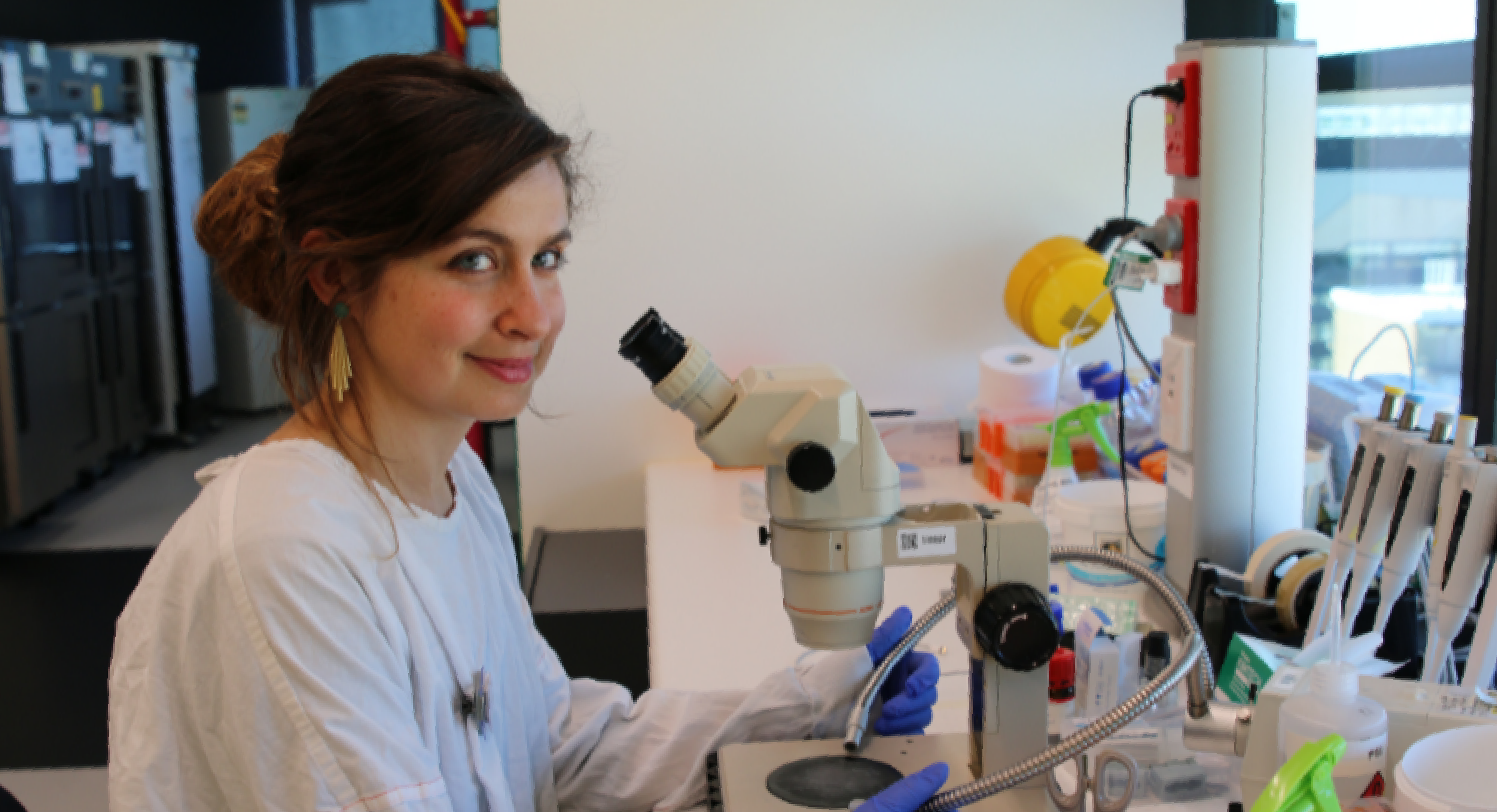 Dr Meyran is working to develop new immunotherapy approaches for children with cancer
Dr Meyran is working to develop new immunotherapy approaches for children with cancer
Dr Meyran and her team will be testing the effectiveness of CAR T-cell therapy to make sure it’s safe and effective for young patients.
CAR T-cell therapy has already proven life-saving for children with B-acute lymphoblastic leukaemia. Around 80% of children respond to the treatment and remain disease-free after a single injection of the reprogrammed cells.
This means there is real hope that Dr Meyran's research could rapidly translate into life-saving new treatments for brain cancer patients like Lily.
This is a revolution, and I want to be part of this revolution. I want to give a better life to these kids.
 Lily with her parents, Alicia and Greg, and her baby brother
Lily with her parents, Alicia and Greg, and her baby brother
How you can help
Every 2 minutes, a child is diagnosed with cancer. And not every family is as lucky as Lily's was. We desperately need more research to find treatments and cures for all types of cancers.
Without sufficient funding, potentially life-saving discoveries like Dr Meyran's could be delayed, pushed aside, or abandoned altogether.
By donating today, you will make a real difference to families like Lily's.
If we can stop just one family going through what we went through, or God forbid, losing their child, it’s totally worth it.
Your compassion gives us all hope that cancer research breakthroughs will bring life-saving cures to everyone diagnosed with cancer.
@Follow us on Instagram (@SupportPeterMac)

